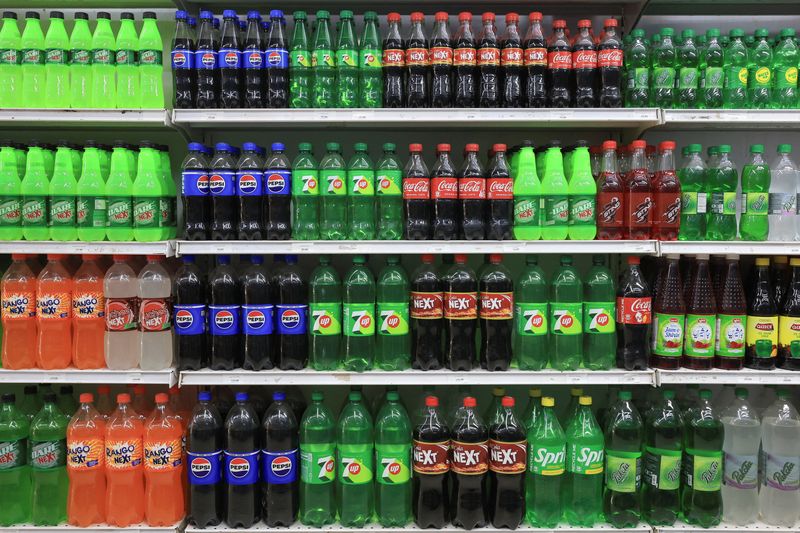LONDON (Reuters) - Global companies including Anheuser-Busch InBev, Coca-Cola (NYSE:KO) and Target have suffered hits to sales and, in some cases, reputations, after shoppers boycotted their products or services over the years.
Consumer boycotts date back at least as far as an 18th century anti-slavery sugar protest in Britain. In more recent years, activists have used social media to target companies whose policies are perceived as irresponsible.
Below are examples of situations that led to consumer boycotts.
ISRAEL'S WAR IN GAZA
* Israel and Hamas have been waging war since gunmen from the Palestinian militant group stormed into southern Israel from Gaza on Oct. 7, 2023, killing 1,200 people and capturing 253 hostages, by Israeli tallies. More than 40,800 people have been killed in Gaza during Israel's subsequent invasion of the Palestinian enclave, according to Gazan health authorities.
Since then, consumers in several Muslim-majority countries have avoided products from companies they perceive as friendly toward Israel. Some companies with operations in Israel, including Unilever (LON:ULVR) and Nestle, say sales have been lower in Muslim countries such as Indonesia.
* In January, McDonald's (NYSE:MCD) CEO Chris Kempczinski said several markets in the Middle East and some outside the region experienced a "meaningful business impact" due to the Israel-Hamas conflict as well as "associated misinformation" about the brand.
* Starbucks (NASDAQ:SBUX) said in January that the war had hurt business in the Middle East as it missed market expectations for forecasted first-quarter results.
* In March, Reuters reported that Gulf retail giant Alshaya Group, which owns the rights to operate Starbucks in the Middle East, planned to lay off over 2,000 people as the business suffered from the boycotts.
* In February, Britain's Unilever said fourth-quarter sales growth in Southeast Asia was hurt by shoppers in Indonesia boycotting brands of multinational companies "in response to the geopolitical situation in the Middle East."
APARTHEID
* Universities in the United States and Britain's Anti-Apartheid Movement (AAM) encouraged people in Britain and the U.S. to boycott products made in apartheid-era South Africa. The movement ballooned by the 1980s and everything from fruit to cigarettes and alcohol was on a list of South African products to avoid.
* The movement also lobbied supermarkets around the world like Britain's Tesco (OTC:TSCDY) to stop stocking South African products.
DISCOURAGING BREASTFEEDING
* Shoppers and activists boycotted Nestle in the mid-1970s over claims it discouraged breastfeeding by promoting breast milk substitutes. The degree to which the boycott impacted sales is unclear, but a subsequent international marketing code was developed by the World Health Organisation to prevent the comparison of manufactured baby milk with breast milk, and Nestle responded with its own policy based on the WHO code during the 1980s.
CRUELTY TO SHEEP
* Driven by activism group People for the Ethical Treatment of Animals, animal-loving U.S. shoppers waged a nine-month boycott in 2004 and 2005 against Italian fashion brand Benetton for using what PETA called "cruelly obtained Australian wool." PETA, which at one point descended upon Benetton's headquarters, alleged a "gruesome Australian procedure" called "mulesing" - removing strips of skin from live sheep - was used in the production of wool used for the company's clothing. Benetton maintained that it had "no involvement" in mulesing. It was unclear if the boycott impacted sales.
TRANSGENDER AND LGBTQ+ MARKETING
* Brewer Anheuser-Busch's Bud Light lost its position as the top U.S. beer after a transgender influencer promoted the beer on social media in April 2023, resulting in a conservative backlash. The company’s stock is still down 9% since the launch of the promotion which took place as part of Bud Light’s March Madness contest.

* U.S. retailer Target encountered confrontations between customers and employees, along with incidents of merchandise being thrown on the floor, following the launch of its LGBTQ-themed collection for Pride Month, celebrated in June. In response to the backlash, the company removed the controversial items from all its stores and website just days after the collection’s debut in May 2023.
(This story has been refiled to remove extraneous letter in paragraph 1)